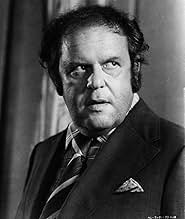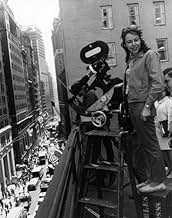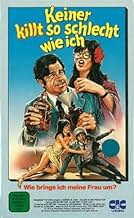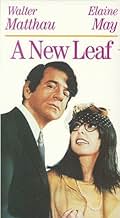A New Leaf (1971)
A kookie, forcibly odd movie. If at first you think it's just plain stupid, keep watching. It's really well balanced, smartly written, and acted with more restraint than usual for a madcap movie like this.
It's billed (by some) as filled with dark humor, but it didn't strike me as dark, not like the contemporary "Harold and Maude" for example. But there is an unusual tone achieved here that is just slightly different and worth getting a feel for. There is, for another example, a parallel in general plot and scenario to "How to Murder Your Wife" from 1965, complete with the willing butler and the hapless rich bachelor, but that movie is a silly 1960s farce and this one has an edge of almost poignancy to it. (I write that word and think Elaine May would cringe--only because I don't think there is an intention to be sentimental or even romantic, the last scene notwithstanding.)
The star is singularly Walter Matthau, who is almost necessarily goofy just by appearances. But maybe the first clever trick by the director, Elaine May, is putting the goofy man in even goofier situations so that he comes off as actually someone serious and believable. To have his character, Henry Graham, driving in his red Ferrari wearing a crash helmet is pure insanity, yet you don't blink an eye. The guy is self-absorbed and nuts. But also very likable, a little out of touch the way we all are, or wish we could be (if we had his money).
And of course the man's dilemma is stated immediately: the money he once had so much of is used up. And you have to see to appreciate the one long scene in the first twenty minutes with Graham meeting his financial adviser about some bounced checks. This is comedy at its absolute best--I mean that. Watch only this scene if you must (and I dare you to skip the rest of the movie once you do). The actor opposite Matthau here is William Redfield, who pulls off the most brilliant of performances.
The other leading character, eventually, is Elaine May herself as the clumsy, naive, filthy rich scientist who Graham sets his sights on for salvation. She is terrific, as well, and like Woody Allen of the same time ("Bananas" is also 1971) seems to direct her own comic zaniness with a calculated distance. The rest of the shenanigans play out with the necessary twists, and it's consistently funny.
So, see this for its freshness even four decades later. No wonder it has a (small but growing) cult following. May has suffered historically from having made the bizarrely awkward "Ishtar" and for being forever linked in the early 1960s as the comedy partner of Mike Nichols, whose movie career overshadows almost everyone's. But here, at least, she shines on her own terms, without distraction.























